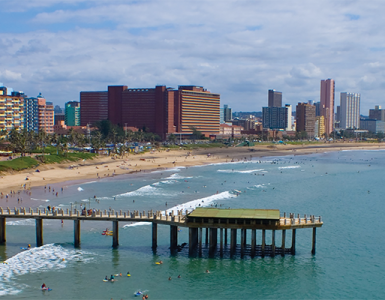PROBITY: Appointment of provincial officials to National Arts Council board under scrutiny as SA Roadies Association smells a rat over possible flouting of procedures and lack of transparency…
By Edward Tsumele
The composition of the National Arts Council (NAC) board has been called into question. This follows claims being made by some former members of the NAC from some provinces who have since relinquished their positions for various reasons. These former Council members this week revealed that their appointment may have been irregular.
The three council members all say that contrary to the legal requirement of the NAC Act, which requires that all nine provincial representatives on the council must be nominated by responsible provincial authority through a “transparent and public” process, their appointment did not follow due process.
Now all three say that no such process took place, but instead, they were allegedly nominated by the provincial Members of the Executive Committee (MEC) responsible for the sport, arts, culture and Recreation departments in the respective provinces. If proven true these charges could put into question the legal standing of the current NAC Council, and therefore the decisions that the council has made since its appointment in January 2021 by then Minister of Sport, Arts and Culture Nathi Mthethwa.
The Minister of Arts and Culture is responsible for appointing Council members, nine of whom must come from the country’s 9 provinces while the rest are appointed by the minister.
“I am not aware of a public and transparent process before I received a letter of appointment to sit on the NAC Council by the Minister,” one such former Council said on condition that his name and the province he represented are not identified.
In light of these allegations, the Newtown, Johannesburg based Non-profit organisation (NPO), SA Roadies Association (SARA) has requested information from the Department of Sport, Arts and Culture regarding the processes that took place in the provinces, leading to the appointment of the provincial representatives on the NAC Council. It has been that such request was sent to the DASC by SARA’s lawyer last week, and
DSAC in return has referred the request to the respective provinces to deal with the request. However, by late today, SARA had not received the response from the provinces. The request seen by
The publication, among other things, has requested the attendance register where the sector debated and chose the names of individuals they preferred to be considered for appointment to sit on the council by the Minister. What this practically means is that provincial authorities need to preside over a public meeting attended by the cultural and creative sector stake holders where an election of sorts takes place.
It is at these public hearings that must lead to the nomination of names from which the responsible provincial authority sends nominated candidates to be considered by the minister for appointment to the NAC Council.
In dispute is whether or not such meetings ever took place before names were sent to the Minister by provincial MECS for consideration for appointment into the NAC.
The request by SARA’s lawyer was made within the framework of the Promotion of Access to Information Act of 2000.
SARA president Freddie Nyathela confirmed that the organisation’s lawyer made such a request to DSAC.
“SARA strongly believes that the NAC’s Council has been unlawfully appointed, a deliberate disregard for the law, the National Arts Council Act. This is patronage at the highest level to loot the public funds and protect rampant maladministration and corruption at the expense of youth empowerment and arts development should cease,”
The following questions have been directed to Sport, Arts and Culture Minister Zizi Kodwa’s spokesperson, Litha Mpondwana, with regards to these claims and here we publish his response to each of three questions sent to the ministry:
Tsumele: Was there such a process, prior to appointing these individuals from the provinces that is “public and transparent” processes prior to their nomination by the respective MECS?
Mpondwana: Section 4 (2) of the NAC Act, Act 56 of 1997 states that, “Every province shall be represented by a representative who shall within the province in question be elected by a public and transparent process which shall be determined and overseen by the responsible member.” Consequently, the Minister sends written communication to the provincial MECs to the names of elected provincial representatives, in line with the NAC Act. The Minister or the National Department does not get involved in a process to elect the provincial representatives.
Tsumele: Are you aware of these claims?
Mpondwana: We were not aware of these claims until a PAIA (Promotion of Access to Information Act) request was recently lodged with the Department on this matter.
Tsumele: Thirdly, we have also been informed that a lawyer representing the SARA has requested from DSAC information pertaining to the public and transparent processes that took place in the provinces before names of individuals were submitted to DSAC (Minister) for consideration for appointment onto the NAC Council.
Mpondwana: The matter has been referred to the provinces to provide information on the processes followed when the provincial representatives were elected.
The NAC is one of several agencies under DSAC, including the National Heritage Council, The National Film and Video Foundation, the playhouses such as the Market Theatre, The Playhouse and the South African State Theatre.
The NAC’s mandate is to fund arts, individual art practitioners and arts organisations to carry out arts projects in a wide range of fields such as literature, visual art, music, theatre, dance and craft. It receives an annual budget in excess of R100 million to carry out its mandate. But since the advent of Covid-19, which left the creative and cultural sector almost on its knees, in addition to its annual budget, the NAC has received extra funds called the Presidential Economic Stimulus to further disburse to art practitioners and organisations to revitalize economic activities in the sector after the devastation of Covid-19. Under PESP, the agency has received in excess of R500 million to date.
Meanwhile, in 2021, the agency was plunged into an unprecedented turmoil when it emerged that it had mismanaged the disbursing of the first PESP Fund, costing its then Chief Executive officer Rosemary Mangope her job after a forensic report ordered by DSAC recommended that disciplinary action be taken against senior executive fingered in the inquiry.
Chaos at the NAC offices in Newtown ensued when enraged artists led by soprano Sibongile Mngoma occupied the agency’s offices for two months, demanding answers relating to the chaos following the disbursement of the PESP, forcing the entire staff to work remotely as they abandoned the occupied offices.
Since then the NAC has never had a substantive CEO, and instead has had two acting CEOs, including the current Acting CEO Julie Diphofa. The arts body has also had a fair share of management squabbles since then, creating a sense of instability for a body that is at the center of arts funding in the country.
Several council members from the original Council appointed in January 2021, have since resigned for various reasons. – Report sourced from CityLife Arts
BOLT DRIVER JAILED FOR LIFE FOR KIDNAP AND RAPE
BUST: Testimony by four victims before high court judge nails e-hailing cab driver for predatory crimes…
By Lehlohonolo Lehana
E-hailing driver Emmanuel Mudau (30) has been sentenced to two life imprisonment terms plus 60 years for four counts of rape, four of kidnapping and two of assault with intent to cause grievous bodily harm.
The sentence was handed down by the High Court of South Africa, sitting in the Gauteng Division today.
The National Prosecuting Authority’s Phindi Mjonondwane said four survivors told the court that Mudau picked them up, and took them to secluded areas where he raped them.
“The four complainants testified that as soon as they entered Mudau’s vehicle, he refused to take them to their intended destinations and took them to secluded areas where he instructed them to undress and raped them.
“In two separate incidents, the complainants tried to run away, one was stabbed, and the other was strangled to succumb to his demands,” said Mjonondwane.
One of the complainants testified in aggravation of sentence, telling the court how living with the trauma and fear has become part of her life.
“State Advocate, Coleen Ryan, echoed her sentiments when she argued that the court should not deviate from the ordained sentences, stating that these women have been scared for the rest of their lives.
“As we reflect on this outcome, our thoughts are with the complainants and their families. They suffered immeasurable pain, and the memory of this ordeal will remain irked in their minds for a lifetime.
We, however, hope that they find solace in that the perpetrator has been removed from society,” she added.
Last year, the Tembisa Magistrate’s Court sentenced 33-year-old Thomas Monyai to life improsonment on a charge of rape, 15 years for robbery with aggravating circumstances, and another five years for kidnapping.
At the time, the NPA said Monyai hooked up on Facebook and started dating the rape victim, a woman who was based in Limpopo. – www.fullview.co.za
































